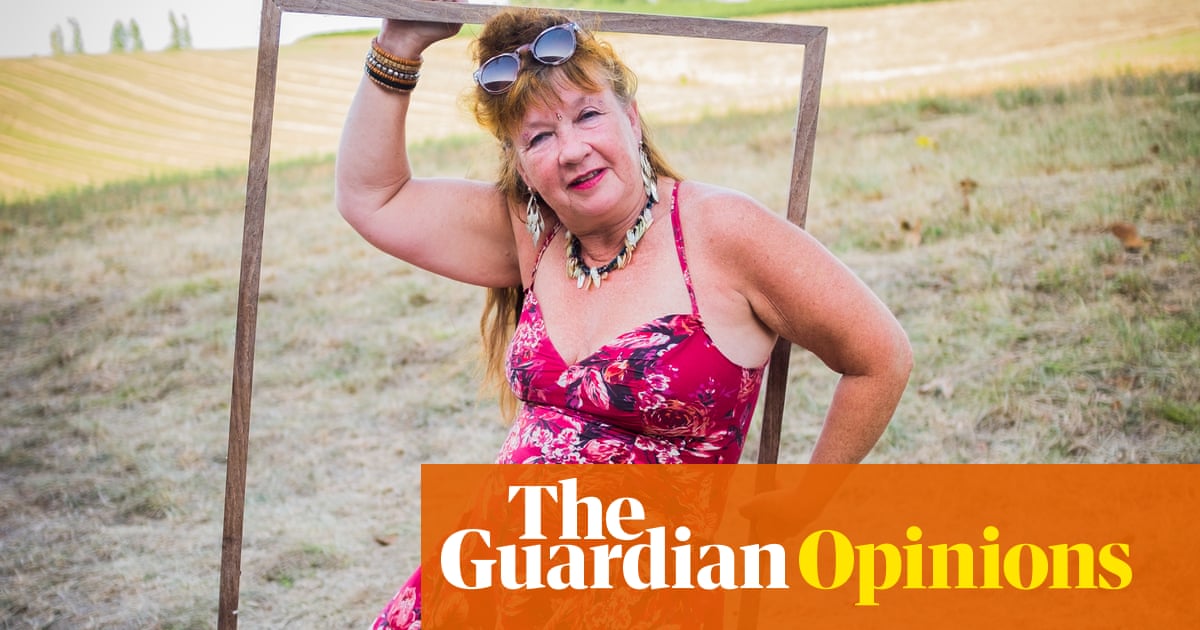The media too often uses the term as a lazy shorthand its ageist, negative and unfair, says writer Rose Rouse

I am a 66-year-old woman and I am many things: a writer, poet, editor, dancer, gardener but one thing I am not, is a grandmother. Despite how the world often chooses to represent me.
Every other day you will probably see granny used in reference to older women: on the BBC; in broadsheets and tabloids; in the local press; on YouTube and other social media. Its a veritable granny fest.
What a f****** woman Granny has time of her life. This is the headline letting us know that an older woman was having a ball at the Glasgows TRNSMT festival earlier this month, singing along with Lewis Capaldi on the shoulders of a younger man.
It may come as a shock, but a lot of older women are not grandmothers. But regardless of whether we have grandchildren or not we older women are not defined by our reproductive organs.
I co-founded Advantages of Age, a social enterprise which is challenging media stereotypes around ageing. It is disturbing to see the way older women are reduced to simply grannies as far as the media is concerned.
The Sun can be depended upon for a gran cliche. Welcome to Granbia, it announces, Gambia has become a sex paradise for British grans that makes Magaluf look tame. Older women are not allowed to be sexual beings either.
A few weeks ago, the Telegraph ran a piece about the over-50 influencers defying stereotypes the piece featured the headline: Were the #instagrans. While the piece was actually positive, it still managed to be needlessly patronising about how older people use the internet: The furthest into the internet an over-50 might travel is Facebook to keep an eye on the kids and post the occasional blurry picture of the garden.
Naturally, among the users of our Facebook group, this kind of representation is a source of passionate discord.
On YouTube, theres a whole genre of videos devoted to grainy footage of raving grannies, inevitably featuring a white-haired woman DJing or dancing wildly at a festival. Youll see headlines such as This 80-year-old Polish granny DJs every week in Warsaw. I love that older women are still dancing and enjoying music in an uninhibited manner but do they have to be patronised along the way? Theres a distinct pat-them-on-the-head tone to all of this.
The French Front National once tried to counteract Madonnas criticisms of its hateful agenda by calling her Granny Gaga. Lynn Barber once referred to Debbie Harry as a plump granny that is shameful coming from another woman and, of course, Harry doesnt have any children.
Grannies seem to be all around us: murdering grannies, boxing grannies, sky-diving grannies, grieving grannies According to Bloomberg: Grannies in running shoes deliver ramen for Uber Eats in Japan. And then the BBC weighs in with Family drugs gang granny Angela Collingbourne jailed and South Africas boxing grannies are all over the internet.
Somehow men are writers, war veterans, engineers, artists, politicians before they are ever labelled grandad.
Ageism is a massive problem in society today look at what happens to the over-50s in the workplace and by permitting this level of granny-ism, the media and others are compounding the many negative and unfair stereotypes around older women. We need to be seen as valuable, loved and intelligent elders the media can help by stopping this demeaning Instagran culture.
Rose Rouse is the editor and co-founder of Advantages of Age, a social enterprise challenging media stereotypes around ageing
Read more: https://www.theguardian.com/commentisfree/2019/jul/22/woman-60s-granny-media-women-age-ageist


Recent Comments